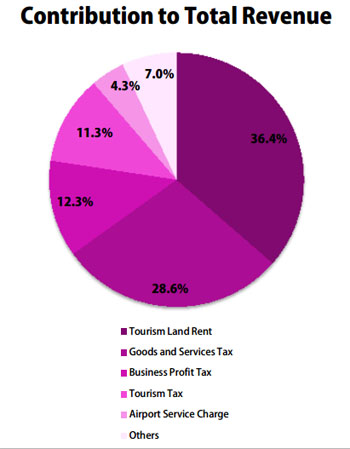The government has declared it intends to transfer the operation of Ibrahim Nasir International Airport (INIA) from the Maldives Airports Company Limited (MACL) to a new state-owned company, Male International Airport Limited (MIAL).
Finance Minister Abdulla Jihad told local media that MIAL would take over the airport’s operations by July 1.
“The company has been registered. Now remains the work by MACL to hand over operations. It will begin soon, without delay,” the Finance Minister said, according to Sun Online.
“The new company will run the airport. The ownership of the airport will remain with MACL until arbitration is completed. But the work on transferring the employees and such will continue, when they take over operations. An official handover of the assets will also be conducted,” Jihad was reported as saying.
His comments follow the leaking of a letter recently sent to the Finance Ministry by Axis Bank, one of backers of the GMR-Malaysia Airports (GMR-MAHB) consortium which the government evicted from the Maldives in December 2012, after declaring the concession agreement signed under the former administration “void from the start”.
A copy of the direct agreement attached to the leaked letter showed the Finance Ministry guaranteed the loans taken by GMR-MAHB, which was signed and stamped in November 2008 by both MACL and then-Finance Minister Ali Hashim.
Axis Bank has called in the guarantee and is currently seeking US$160 million from the government and MACL. In the letter copied to both the Finance Ministry and MACL, the bank expressed concern that the government was attempting to turn MACL into a shell company while arbitration was pending, and warned it not to transfer the company’s assets or function to a new entity.
“Given that Axis Bank’s claim under the direct agreement is against MACL, you will understand that Axis Bank views with the greatest concern any attempt to dissipate the assets of MACL in favour of MIAL or any other third party,” wrote Axis Bank’s CEO Bimal Bhattacharyya in the letter, dated April 22.
“If MACL ceases to manage and operate Male’ airport, and MIAL instead performs that role, then MACL will lose almost all of MACL’s revenue stream, and become a shell,” he wrote.
The letter demanded the government “undertake not to allow any assignment, transfer or disposition of any of MACL’s rights to manage and or operate Male airport to MIAL or any third party… or allow MIAL or any third party to perform any function of managing or operating Male’ airport which is presently performed by MACL”.
“Please understand that Axis Bank views any dissipation of MACL’s assets with grave concern, and will take the necessary legal action to prevent such a dissipation”, the bank advised.
MIAL’s appointed CEO Bandhu Saleem at the time told Minivan News that “until the arbitration is complete, I think it will be very difficult to start a new company.”
Meanwhile, uncertainty over the fate of the airport and the outcome of both the arbitration process and the upcoming presidential election led the global body representing the world’s airports, Airports Council International (ACI), to issue an alert to its members advising them to “conduct due diligence while considering any investment in the Maldives, considering the latest developments, uncertainty of outcome of elections, the legal and financial risks of the current arbitration and the nascent legal framework.”
ACI informed its members that the takeover was the subject of arbitration proceedings expected to last 9-12 months, and further noted that as the government had guaranteed the bank loans used by the developer, these were also the subject of separate proceedings.
With elections scheduled for September, ACI advised it was possible that “any leadership changes arising out of the elections [could] have a material impact of the future of the Male’ airport and the decision of expropriation.”
